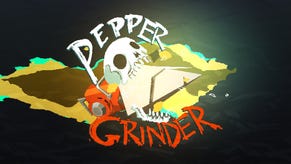The First Templar
Not-quite-broken sword.
All abilities can, of course, be enhanced and augmented by cashing in XP points earned during each fight. Each of the three characters has his or her own unique fighting style and sprawling skill tree made up of dozens of unlockables, ranging from extra health to new attack options.
What matters in a game like this is the flow of the combat, and that's where The First Templar is strongest. There's a rudimentary block, parry and counter system in place and the controls are nicely pitched to allow you to really make the most of it. Breaking out of a combo to block an incoming attack is fast and intuitive, and combat - the meat of the game - is a simple yet effective pleasure because of this responsiveness.
The fighting system is shown off to its best during occasional duels, where you fight a key enemy one-on-one. These really do feel like swashbuckling swordfights, where patience and timing are more useful than button-mashing.
Beyond the clang and clash of steel on shield, the game offers just enough to prevent boredom seeping in. Every level contains numerous optional objectives, as well as a set number of hidden chests. Well, not that hidden, since they show up on your radar, but getting to them often requires a small amount of navigation and brainwork. These are more than just busywork padding, as the chests also offer bonus chunks of XP, cosmetic costume pieces or extra status buffs that endure for the remainder of the level.
Every now and then, the game even takes a break from the sword-slicing and dips a tentative toe into Tomb Raider's waters - although as none of the characters can run or jump, it's easier to appreciate the effort rather than the execution. Navigating lever-activated doors and bridges, awkwardly shuffling past spinning blades and jets of flame, it's here that Bulgarian developer Haemimont Games comes closest to overreaching. It's also where the game's simple but efficient drop-in online co-op play is most evident, as you collaborate to open pathways for each other rather than simply carving up enemies side by side.
Come the end, like me, you may find that you've enjoyed this oddball little offering more than you thought you would. The ending drags on for a few stages too long, and you'll exhaust the potential of the skill tree way before this point, but the lingering feeling is one of pleasant surprise and time well spent. It's a lot like Obsidian's Alpha Protocol in that respect, a game that somehow works despite itself, sneakily winning you over with likeable ambition and solid core concepts.
It helps that The First Templar's endearingly off-kilter presentation keeps expectations low, and even at its best it's still only pretty good at what it does. But being surprised by a game that succeeds on modest terms is often more satisfying than grudgingly accepting a hyped blockbuster that fails to deliver, so while the final "not bad" score might be the same, the actual experience couldn't be more different.








